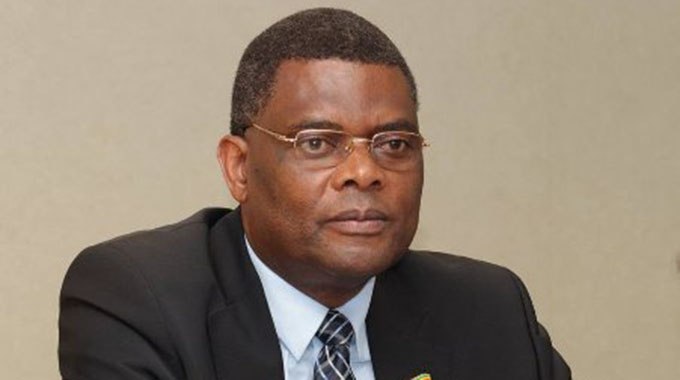Govt pledges safe operating environment for media

Rumbidzayi Zinyuke
Senior Reporter
THE Government is committed to provide a safe operating environment for the media and to guarantee their freedoms to ensure they execute their duties freely for the attainment of targets set under Vision 2030 of a viable media industry.
Speaking at the commemorations to mark the International Day to End Impunity for Crimes Against Journalists today, Information, Publicity and Broadcasting Services Minister Monica Mutsvangwa said the Second Republic strived to protect the rights of journalists by upholding the sanctity of the venerable fourth estate.
“Impunity for any crime is an abhorration in any democracy. I dare say, impunity for crimes against journalists is by far more grievous, as it seeks to silence the voices that keep in check society’s excesses. Zimbabwe is renowned for its peace, harmony and stability.
“So when we hear reports of intimidation of journalists and harassment, they greatly impact on our work as government especially now when we are seized with our engagement and re-engagement agenda,” she said.
She said support of a viable media industry that creates jobs and competes on the international arena was one of the key pillars of Vision 2030 and as such, Government would not tolerate any forms of violence against journalists.

Tanaka Gwavava manhandles a journalist covering his sister Sandra Gwavava(right) court case at Harare Magistrate Courts yesterday. Sandra Gwavava appears to answer culpable homicide charges that led to the death of her lover and public relations practitioner Augustine Moyo. Zimbabwe joins the rest of the world in commemorations to mark International day to end impunity for crimes against Journalists yesterday.-Picture: Lee Maidza
As part of the law reform agenda, Minister Mutsvangwa said the repeal of the Access to Information and Privacy Act to give way to the Freedom of Information Act, was a sign that Government had listened to the voice of reason in the media.
“We sought to remove anything that hindered journalists to execute their duties freely. We are fully aware that a lot more still needs to be done and we will do it,” she said.
She urged journalists to use the existing channels within the confines of the law to ensure that cases of violence against them are investigated and perpetrators brought to book.
Police spokesperson Assistant Commissioner Paul Nyathi reiterated that journalism is not a crime and gave assurance that police would not deter journalists in performing their duties as they were the link between the police and the society.
“This year we have only had a few cases where journalists were arrested and we intervened and they were released without any charges. Section 61 of the Constitution gives media the right to operate and as the police we need to facilitate their work. We want to utilise media organisations to engage officers commanding provinces and districts so that some of the challenges faced by journalists on the ground are quickly addressed,” he said.
He said the police was monitoring the social media space since Covid-19 had affected the way information was being relayed leaving media to provide checks and balances on the information posted.
European Union head of political sector Lourdes Chamorro said journalists across the world, particularly women, were vulnerable to threats and attacks.
She said more than 70 percent of female journalists had declared that they had experienced online abuse in the course of their work.
“We appeal to state authorities to prevent and condemn such violence and to take effective measures to end impunity. We advocate for countries around the world to put in place multi-stakeholder frameworks for journalists’ protection. Such a framework include, where possible, a range of actors from Government, police, justice sector, media, civic society and human rights groups.
“We stand ready to work with you as well in that direction. Information is a public good and we must protect those who create transparency,” she said.
Media Alliance of Zimbabwe vice chairperson Mr Loughty Dube said the practice of journalism could not thrive under conditions of threat to life and dignity.
He said the country had recorded a decrease in cases of violations against media which could signify the dawn of a new era in which there was an enabling environment for journalism to thrive.
“While it is commendable that various stakeholders that MAZ members have engaged with, including the ZRP, political parties and government officials have all committed to guarantee the safety of journalists, there is still more that can be done to ensure that their officers and party supporters exercise restraint when engaging with journalists,” he said.
Media Institute of Southern Africa regional director Mr Thabani Moyo urged authorities to investigate crimes committed against journalists on duty and prosecute perpetrators to send a clear message that society does not tolerate attacks on the media.








Comments